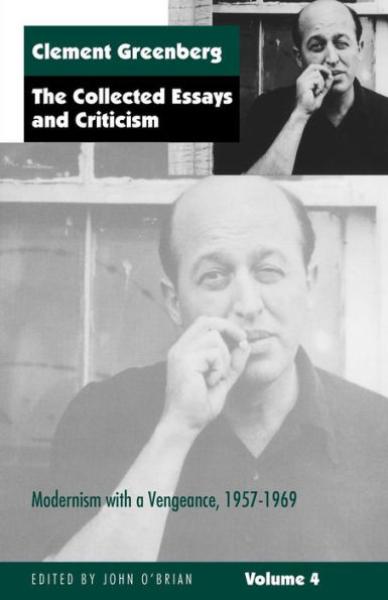Description
With the inclusion of critical exchanges between Greenberg and F. R. Leavis, Fairfield Porter, Thomas B. Hess, Herbert Read, Max Kozloff, and Robert Goldwater, these volumes are essential sources in the ongoing debate over modern art. For each volume, John O'Brian has furnished an introduction, a selected bibliography, and a brief summary of events that places the criticism in its artistic and historical context.
Clement Greenberg (1909 1994), champion of abstract expressionism and modernism of Pollock, Miro, and Matisse has been esteemed by many as the greatest art critic of the second half of the twentieth century, and possibly the greatest art critic of all time. On radio and in print, Greenberg was the voice of "the new American painting," and a central figure in the postwar cultural history of the United States.
Greenberg first established his reputation writing for the "Partisan Review", which he joined as an editor in 1940. He became art critic for"The Nation" in 1942, and was associate editor of "Commentary" from 1945 until 1957. His seminal essay, "Avant-Garde and Kitsch" set the terms for the ongoing debate about the relationship of modern high art to popular culture. Though many of his ideas have been challenged, Greenberg has influenced generations of critics, historians, and artists, and he remains influential to this day.
John O'Brian is professor of art history at the University of British Colombia.
Product Details
- University of Chicago Pre Brand
- Jun 1, 1995 Pub Date:
- 0226306240 ISBN-10:
- 9780226306247 ISBN-13:
- 358 Pages
- 8.46 in * 5.56 in * 0.76 in Dimensions:
- 1 lb Weight:




